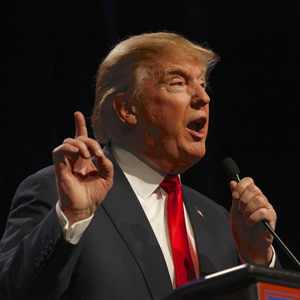Did Trump's disclosures to Russia break the law?

President Donald Trump
President Donald Trump asserted on Twitter early Tuesday that he had the “absolute right” to share terrorism information in a meeting with Russian Foreign Minister Sergey Lavrov and Ambassador Sergey Kislyak last week.
The information was “highly classified” according to the Washington Post, and it could jeopardize an intelligence source on ISIS, the Post reports in a story about the tweets. Administration officials, however, denied the report, asserting that the president did not disclose intelligence sources or methods of intelligence collection.
Trump was likely correct in asserting he had the right to share the information, according to the Post, USA Today and LawFare. As president, Trump has broad authority to declassify government secrets, the Post explains.
The purpose of classified information is to protect intelligence that the president and his subordinates deem to be sensitive, according to the LawFare post co-written by six experts, including Harvard law professor Jack Goldsmith. The blog post points to a 1988 Supreme Court decision, Department of Navy v. Egan, which stated that the president has authority to classify information on national security as part of his executive powers.
As President I wanted to share with Russia (at an openly scheduled W.H. meeting) which I have the absolute right to do, facts pertaining….
— Donald J. Trump (@realDonaldTrump) May 16, 2017
…to terrorism and airline flight safety. Humanitarian reasons, plus I want Russia to greatly step up their fight against ISIS & terrorism.
— Donald J. Trump (@realDonaldTrump) May 16, 2017
“In short,” LawFare says, “Trump did not violate any criminal law concerning the disclosure of classified information.”
But the reported disclosure “is not a garden variety breach” because it may have disclosed the U.S. ally or the intelligence capability that provided the information. If true, Trump may have disclosed not only U.S. intelligence sources, but also those of another country.
The revelation could result in the nullification of information sharing agreements with other countries, according to Mark Zaid, an attorney specializing in national security matters who spoke with USA Today.
The disclosure—if the result of carelessness or neglect—may also have breached the president’s oath of office, according to LawFare. The oath requires the president to “faithfully execute the office of president of the United States” and to “preserve, protect and defend the Constitution.”
“There’s thus no reason why Congress couldn’t consider a grotesque violation of the president’s oath as a standalone basis for impeachment—a high crime and misdemeanor in and of itself,” LawFare argues.
“This is particularly plausible in a case like this, where the oath violation involves giving sensitive information to an adversary foreign power. That’s getting relatively close to the ‘treason’ language in the impeachment clauses; it’s pretty easy to imagine a hybrid impeachment article alleging a violation of the oath in service of a hostile foreign power. So legally speaking, the matter could be very grave for Trump even though there is no criminal exposure.”
Updated at 10:22 a.m. to correct a typographical error.



